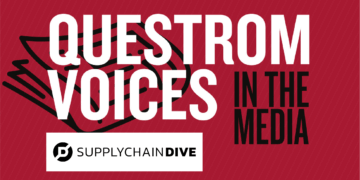Assistant Professor Douglas Hannah was awarded the Kauffman Best Paper in Entrepreneurial Cognition at the Academy of Management Annual Conference in August. This blog post builds on the insights from this ongoing research, joint with Shi Ying Lim at the National University of Singapore, as well as teaching in Questrom’s Innovation & Entrepreneurship Minor.
If you step into an entrepreneurship classroom today, or read an article geared towards entrepreneurs, you’ll end up hearing a lot about Lean Startup. This framework, which originated in Silicon Valley in the mid 2000s, encourages entrepreneurs to learn and validate their ideas by engaging directly with the market through low-cost prototypes and minimum viable products (MVPs).
The basic logic behind Lean – and more recently, the broader body of academic work on scientific entrepreneurship – is that when exploring a new technology, market or idea, it is often impossible to predict what customers will want, or what will succeed. So, entrepreneurs benefit from using simple tests and prototypes to learn about what does work – and what customers will want – before wasting lots of effort developing a product that may turn out to be a dud. If an idea receives positive feedback, it may warrant further refinement and development. If not, the entrepreneur can pivot to something else.
Lean Startup has taken over entrepreneurship education. In one ongoing study with Questrom Professor Siobhan O’Mahony and PhD student Hilary Mahar, I find that about 2/3 of all introductory entrepreneurship classes in the US teach Lean Startup. Both the National Science Foundation and the National Institutes of Health run Lean Startup programs as well, and the framework provides the intellectual foundation for many university entrepreneurship centers. In other words, Lean Startup is everywhere.
This new push to be systematic about learning and testing entrepreneurial ideas is great, and there is a lot of evidence in support. But, Lean principles are often misapplied, especially in classrooms. In fact, this is the key takeaway from my recent, ongoing study with Shi Ying Lim of the National University of Singapore, which highlights how rapid prototyping and quick iterations – the behavior that is often idealized in entrepreneurial circles – can actually backfire.
To build these insights, we conducted a longitudinal study of five entrepreneurial ventures in the nascent digital healthcare space. This was an area that, starting around 2010, everybody knew was going to be big due to both regulatory changes and the growing ubiquity of smartphones. While the overall market was promising, what this meant for aspiring entrants was not. It wasn’t clear, for example, who would pay for products, what features would matter, or what technologies would best deliver lower costs and improve health outcomes. Using a rich set of interviews and online data, we traced how five young ventures dealt with this uncertainty, exploring different markets and prototyping different products over a period of about six years.
Our study reveals three major lessons – all of which have significant implications for how we teach students to become effective entrepreneurs.
The first thing we find is that the more effective ventures tended to delay prototyping. Instead of immediately creating mockups and getting them to customers for quick feedback, they initially chose to avoid prototypes altogether. Instead, they spent time learning about potential users and the problems they faced, mainly through interviews and observations. In contrast, the less successful ventures did exactly what students are often taught to do – they built low-cost prototypes and got them into the world for feedback. The challenge for those rapid prototypers however was two-fold: when they got negative feedback, they often couldn’t determine whether the issue was with the product, the market, or the prototype itself. And second, their eagerness to pivot frequently led them to abandon potentially good ideas.
This emphasis on learning and building empathy with customers is a central feature of “Ideas to Impact” (QST SI 250), which I helped design and now teach. Ideas to Impact is the core course required for the Innovation and Entrepreneurship minor. This project-based course brings together students from across the university to work in teams and develop solutions to significant global challenges, such as safety, nutrition, and mental health. In contrast to most entrepreneurship courses however, we encourage students NOT to think about potential solutions right away (sometimes, I’ll even have the students write down their “best” idea, only to set it aside). The logic is simple – if you think of a solution to a problem without having done any research or gotten to know your user, how likely is it to be the best one?
A second big finding from our study is the importance of delivering real value to alpha users, even at the earliest stages of prototyping. While some ventures tried to minimize development costs early on – waiting until they were more confident customers actually wanted their product – the winning ventures were quicker to build more customized and fully featured products. This effort was valuable because it signaled to customers that the ventures were genuinely committed to the idea, prompting them to be more willing to invest their own time and effort as well. At the same time, building better and more customized products meant that the ventures ran into more engineering challenges early, and thus had more opportunities to learn.
In the same way, we often push “Ideas to Impact” students to actually implement their ideas, even if only in a scaled-down way. For example, I recently had a team that wanted to tackle the issue of learning how to be an effective presenter. The challenge is that students often lack opportunities to practice – and most of their experience is in the high-stakes context of actual, graded class presentations. After weeks of interviews and observations, the team settled on the idea of creating a low-stakes peer group where students could sign up to practice class presentations, get feedback from peers, and get some rehearsal before delivering their (graded) presentation – similar to Toastmasters but focused on class projects. To understand if this idea was any good, the team could have surveyed users, or consulted experts. Instead, they decided to put it into action – creating signups, organizing sessions, and allowing students to experience it firsthand. In doing so, they got better insight into their idea (and its weaknesses) than they ever could have from simply mocking up a website or describing their idea to a panel of experts.
A final insight from our study is that entrepreneurs need to be willing to let ideas go. In the digital health context, pushing ahead on an idea that was struggling to gain traction proved to be a losing strategy: while big firms like Google or Apple might be able to support an unprofitable product, smaller ventures generally cannot. The issue for entrepreneurs is that after months spent developing an idea, it is easy to see giving up on an idea as a sign of failure. The same is true for students. But the flip side is that after all of their hard work, they know so much more, and their new idea can benefit from all of the rich experience they now have. In other words, a new idea is often worth pursuing, despite having to start fresh.
In the classroom, this poses a challenge because students who pivot to a new idea midway through the semester have less time to develop and polish that idea compared to those who continue working on a less promising idea. To address this, we grade on process, with our instructors asking, did this group follow a sound process? And does this pivot make sense? If the answer to those questions is yes, then the group can expect to do well – even if they haven’t worked out all the details of their new idea or if it isn’t as thoroughly validated as it could be.
Overall, what our study shows – and what we’ve learned from the past five years of developing and scaling SI250 – is that it’s not enough to push students to start building. Instead, they should start by developing a rich understanding of potential users, the context, and the problem to be solved, prior to prototyping. That takes a different set of skills. Then, when it is time to actually build their idea, we need to reward efforts that deliver on the value proposition, rather than just simple sketches or mockups. And, hardest of all, students (and faculty) must be willing to throw it all out if – and inevitably, when – an idea doesn’t work.
If you are an educator and want to build on the course approach we’ve described here, contact Doug (dphannah@bu.edu), as all the Ideas to Impact course materials are free and online.






















![[Business Insider] Russia’s Early Resilience to Sanctions is Fading](https://insights.bu.edu/wp-content/uploads/Voices-Business-Insider-360x180.png)



